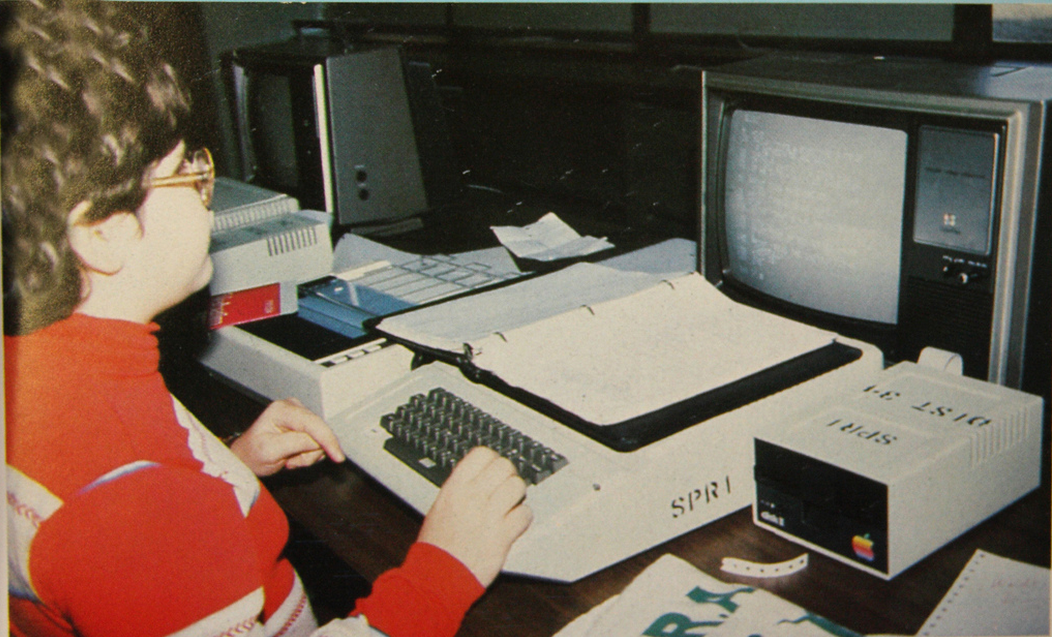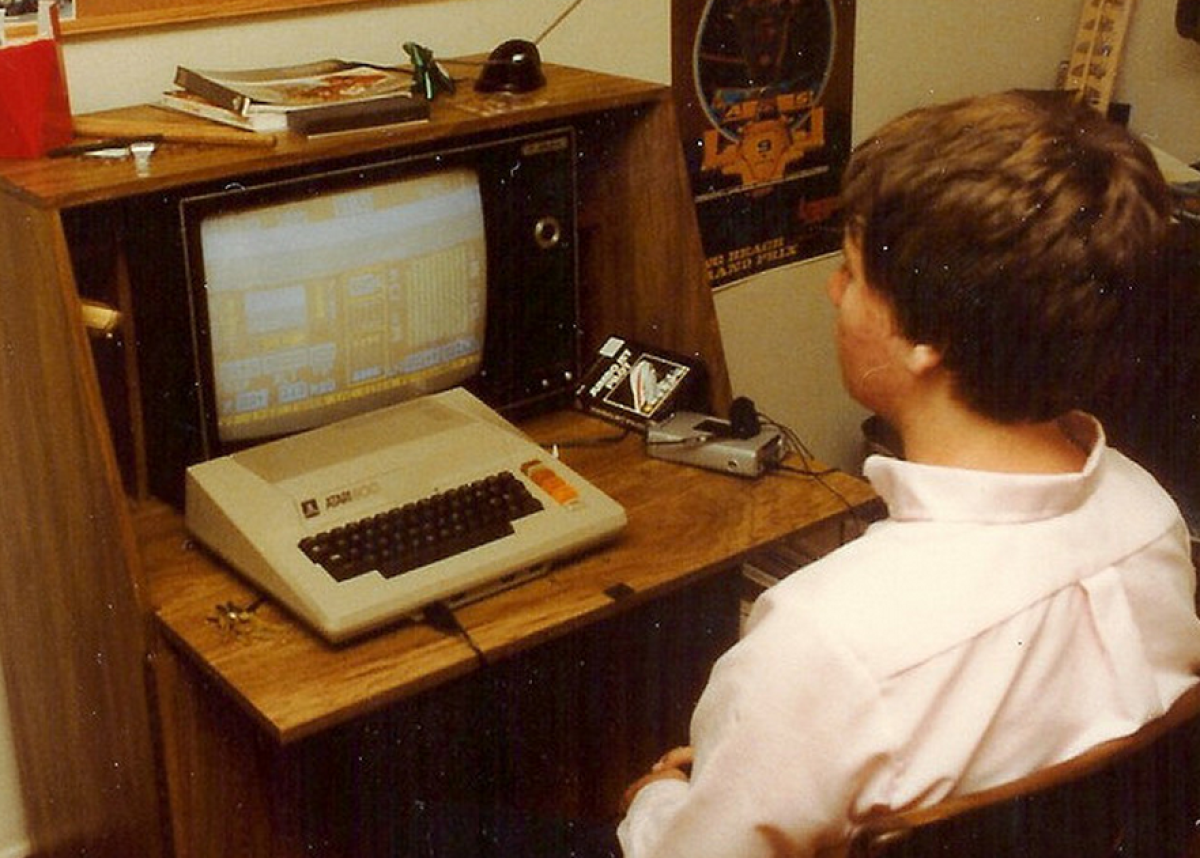
It's April 1, and the Internet is a frazzled, hot mess of jokes, lies and hoaxes being witlessly shared by your friend's roommate's boyfriend. Be skeptical: Nothing newsworthy is real, unless someone took a selfie in front of it, and even then it might well be a green screen.
Time was, a good online April Fools' Day prank actually meant something, because such a stunt had never been done before. Let's go back: April 1, 1984. Reagan was running for re-election. The Cold War was still raging (just seven months earlier the Soviet Union shot down a Korean flight containing a U.S. congressman, escalating tensions). Konstantin Chernenko was serving a brief, unhappy stint as General Secretary of the Communist Party of the Soviet Union. And in Amsterdam, a 40-year-old computer wiz named Piet Beertema had an idea: He would trick Americans into believing that the Soviet Union was joining the Usenet network, the computer communications system in use in the early 1980s.

"It just occurred to me," Beertema says from outside Amsterdam. Now 71, he still chuckles loudly when asked about the idea. "I have no idea how or why, but it was just an idea. I'd read Orwell's story about 1984. That came in pretty handy."
In 1984, the Internet wasn't much. "Everything was completely new to us and to anyone participating in this," Beertema says of the early web. Back then, Usenet was a bulletin board–like precursor to the forums of the 1990s; the World Wide Web was still five years away from launch. If you were online at all, you were probably a huge nerd. But Beertema knew what he was doing. A longtime Center for Mathematics and Computer Science employee who would go on to play a key role in bringing the Netherlands online (he founded the Netherlands country code domain .nl in 1986), he logged onto several Usenet groups and posted a cheery message that looked to be from Konstantin Chernenko (or "K. Chernenko," as it was signed):
From chernenko@kremvax.UUCP Sun Apr 1 15:02:52 1984
Relay-Version: version B 2.10.1 6/24/83 (MC840302); site mcvax.UUCP Posting-Version: version B 2.10.1 4/1/84 (SU840401); site kremvax.UUCP Path: mcvax!moskvax!kremvax!chernenko From: chernenko@kremvax.UUCP Newsgroups: net.general,eunet.general,net.politics,eunet.politics Subject: USSR on Usenet Message-ID: <0001@kremvax.UUCP> Date: Sun, 1-Apr-84 15:02:52 GMT Article-I.D.: kremvax.0001 Posted: Sun Apr 1 15:02:52 1984 Date-Received: Mon, 1-Apr-84 12:26:02 GMT Organization: MIIA, Moscow Lines: 41 <.....>
Well, today, 840401, this is at last the Socialist Union of Soviet Republics joining the Usenet network and saying hallo to everybody. One reason for us to join this network has been to have a means of having an open discussion forum with the American and European people and making clear to them our strong efforts towards attaining peaceful coexistence between the people of the Soviet Union and those of the United States and Europe. We have been informed that on this network many people have given strong anti-Russian opinions, but we believe they have been misguided by their leaders, especially the American administration, who is seeking for war and domination of the world. By well informing those people from our side we hope to have a possibility to make clear to them our intentions and ideas. Some of those in the Western world, who believe in the truth of what we say have made possible our entry on this network; to them we are very grateful. We hereby invite you to freely give your comments and opinions. Here are the data for our backbone site: Name: moskvax Organization: Moscow Institute for International Affairs Contact: K. Chernenko Phone: +7 095 840401 Postal-Address: Moscow, Soviet Union Electronic-Address: mcvax!moskvax!kremvax!chernenko News: mcvax kremvax kgbvax Mail: mcvax kremvax kgbvax And now, let's open a flask of Vodka and have a drink on our entry on this network. So: NA ZDAROVJE!
-- K. Chernenko, Moscow, USSR ...{decvax,philabs}!mcvax!moskvax!kremvax!chernenko
The message was smartly crafted: blatantly propagandistic, but not outrageously so. Plus, it was sent from a fake Kremlin server (kremvax.UUCP). And the response came quick. "Slight panic, let's put it that way," Beertema remembers. "Lots of people immediately believed the whole story. They simply didn't look at the date. It was also because I had intentionally written it backwards."
The posting sparked fear "because the notion that Usenet might ever penetrate the Iron Curtain seemed so totally absurd at the time," notes a summary in The Jargon File, an online guide to hacker slang. In fact, Beertema writes on his own site, the idea of "any form of network connectivity to any East Block [sic] country, let alone the USSR, was unthinkable and considered a direct threat to (US) national security." Here are some of the actual responses Beertema's Usenet posting received:
Wow!
Is this for real? Honest-to-god Russia? Gee. I never thought that I'd
see it. Does this imply that Unix is behind the Iron curtain?Is this for real? Can we have confirmation from someone who is
recognized as being in a position to know?get out of our network!!!
Two weeks later, in a follow-up post, Beertema revealed himself as the real source of the posting, but not before he claims it sparked some genuine concern at the Pentagon on "how to deal with it."
So: was "Kremvax" the first online April Fools' hoax? Depends how you define "online." When asked, Beertema points to "TELNET RANDOMLY-LOSE Option," a joke document distributed on April 1, 1978 by the Internet RFC Editor. But that was probably sent over the old ARPAnet, Beertema says, before the modern Internet Protocol Suite was standardized in 1982. And these are technical distinctions. Either way, Beertema's Internet hoax was surely the first one with general, international reach.

In some ways, "Kremvax" seems like a precursor to the viral hoaxes of today's Internet. No, there wasn't such thing as a viral web in 1984. But there was an Internet (sort of!), and there were gullible, stupid people who spent time on it. The Chernenko note fits some of the modern hoax criteria. It originated in a foreign country. ("This is one of the most common ways phony news peddlers sell us horseshit," VICE noted in a 2014 guide on "How to Prevent Fake News from Spreading on Social Media" "because the mere mention of, say, China, or Russia, to a Western audience short-circuits our skepticism." Indeed.) It's from a dubious-seeming source. And it involves a world leader (remember the hoaxy story about Kim Jong Un feeding his uncle to dogs?).
Beertema doesn't see himself as a pioneer. "People use all media that they can that are available for pranks," he says. But, he adds, "the Internet has grown so much that it's hard to come up with a prank that reaches so many people like it did in those days."
Amusingly, his historic prank came truer than even he'd expected. In the early 1990s, as the Cold War neared its end, Russia actually did join Usenet. A programmer named Vadim Antonov connected the first Moscow-based site, demos.su, but users took it to be another joke.
So Antonov took a cue from Beertema. The site's new name? Kremvax.demos.su. Every good hoax turns true in the end.
Uncommon Knowledge
Newsweek is committed to challenging conventional wisdom and finding connections in the search for common ground.
Newsweek is committed to challenging conventional wisdom and finding connections in the search for common ground.
About the writer
Zach Schonfeld is a senior writer for Newsweek, where he covers culture for the print magazine. Previously, he was an ... Read more
To read how Newsweek uses AI as a newsroom tool, Click here.








